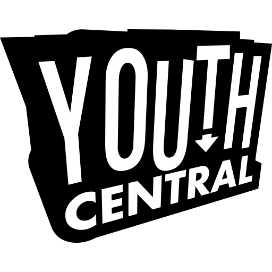The Problem
With exam finals coming up, I’m sure that if you’re a student, you have been dreading this period of time for a while. And if you’re like me, you’ve probably heard a lot of reminders from your parents, teachers, and friends that it’s important to study.
However, you probably haven’t heard strategies on how to study. So you just do what you see in movies and on social media – you re-read your notes, read through slideshows and textbooks, and pray for the best.
Long story short: don’t.
My Personal Experience
In middle school I only used passive studying like reading and highlighting. The night before my quiz or unit test, I would try to read over the entire textbook, all of the slideshows, and highlight my notes. And it worked. I might not have retained any of the information after the test, but I got through pretty well. Up until high school, I got perfect grades.
But once high school started, reading and highlighting were no longer enough to help me get through. As a pretty academically focused student, I was devastated when I received a 64% on my first quiz. I knew something had to change, so started using different study strategies. I tried every single one I found on the internet, and there were some that worked, but also a lot that didn’t. But when I eventually discovered the most effective methods of studying, my grades gradually returned to above 95%. So after many late nights of trial and error, here are some strategies that I’ve found which will help you study effectively!
1. Cornell Notes with Review
Cornell notes are a very popular way of taking notes. It is a type of note-organization where you write important concepts in the margins and leave a small space at the bottom to summarize the information in that page. After class or after school, you can go back through your notes and write out the note summaries as a form of review.
I found the Cornell Note Method to be more effective when I turned the important concepts into questions. For example, instead of writing one of the main concepts was “The Greenhouse Effect”, I would turn it into a question like “What is the Greenhouse Effect? Why is it important?” This way, when it was time for review, I could quiz myself on the main concepts using the review questions I came up with while I was taking notes. The answers would be in my notes, and I knew that I was prepared if I could answer all the questions correctly.
2. Feynman Technique
The Feynman technique is also a popular way of reviewing information. It involves learning a concept, closing the textbook, and explaining what you’ve learned to somebody else. This can help you identify gaps in your knowledge and pieces of information that you don’t understand.
This technique is extremely effective if you have family that is willing to listen to you. Understandably, they might have more important things to do. But you can also apply this technique to an inanimate object. Computer scientists call this “the rubber duck technique”, where they try to explain their code line by line to an inanimate object on their desk until they find the error. Similarly, you can use the Feynman technique to teach a stuffed animal the Greenhouse Effect and discover some areas that you might not fully understand while explaining.
Feynman is also particularly for study groups. When studying with a friend, even if you are studying different subjects, you can use the Feynman Technique to review. This benefits both of you – you can identify weaknesses in your knowledge, and your friend will learn something new. So next time a friend asks you for help, think of it as a review strategy and don’t hesitate to lend a hand!
3. Flashcards
Flashcards are one of the most effective ways of basic memorization that I have ever used. While they aren’t very effective for understanding, if you need to learn terminology, historical names, or historical dates, flashcards are the way to go. Although there are many different online flashcard resources such as Quizlet and Cram, I like to use physical flashcards because I don’t want to be distracted by social media or tempted to play games on my phone. I also learn a lot of the ideas while creating the cards.
A few years ago, I had a music theory exam where I needed to know hundreds of musical terms. I made flashcards for each one of them, and reviewed the stack every morning and afternoon on the bus ride to school. Over a few weeks, I memorized an entire glossary of musical terms.
Keep in mind that flashcards are best used when you are memorizing basic ideas. Unless you’re cramming in information last-minute, it’s best to choose a different strategy for important concepts so that you can understand them instead of just remembering.
4. Practice as Much as Possible
The most old-fashioned way of studying… doing massive amounts of practice questions and practice exams. This is where you actually apply your learning. While this technique is only effective when you have time, practicing is one of the most tried and true ways of reviewing key concepts and ideas. You can use your textbook, or extra worksheets from class (never turn those down!). There are so many resources for practice tests online. Here are a few:
- Khan Academy
- It has plenty of resources for high school math and science, economics, computer science, American history, and even life skills
- IXL Learning
- Great resources for math and English
- You can’t do all the questions without a paid membership, but you can still look through lots of practice questions
- Edquest
- Perfect for middle school science practice questions and Grade 9 PAT preparation
You can also use AI tools like ChatGPT, Gizmo, and Dende to generate practice exams and answer keys. However, keep in mind that these tools are not always reliable and it’s best to know most of the basic information before using them.
Don’t forget to check your work. Nobody likes doing this, but it is so important to do. Otherwise, all your work is for nothing.
5. Blurting
Give yourself 20-30 minutes to review a lesson or a chapter. Read through your notes and your textbook during this time and try to understand and remember the key concepts. After the time is up, close all the resources and take a brief 2 minute break to move around. When you come back, take a sheet of blank paper and try to write down everything important about the 20-30 minute review time without using your notes or your textbooks. When you finish, compare what you wrote back to your resources and identify any gaps.
Hint: if it feels tedious, that probably means that you know your stuff!
6. Review Your Review
Now that you’ve gone to identify and fix up your weak spots… go back and review the weak spots again. Pull up all the questions you have gotten wrong, and identify why you got them wrong. And the reason is never “I’m just stupid for not remembering” or “meh I just made a mistake in the unit analysis.” Try to find the underlying reason instead of blaming yourself. Did you really understand the information? Is it that you need to practice more questions that involve different concepts so that you can recognize when they’re applied?
Tip: If you have previous quizzes to reference, find all the questions you got wrong or were unsure about. What happened? How can you review your materials so that you get a better score next time?
To Conclude
There are many different study strategies out there that work for many different people with all sorts of learning styles. The techniques I’ve listed today are what helped me go from barely passing my classes, to being among the top scorers.
It can seem super intimidating to try new strategies that aren’t guaranteed to work. However, if you aren’t happy with how you’re doing, it would be a bad decision to continue without any changes because you wouldn’t improve at all. So I encourage you to try some of new strategies and see how it turns out.
I hope this article helped! Best of luck on your next tests.


